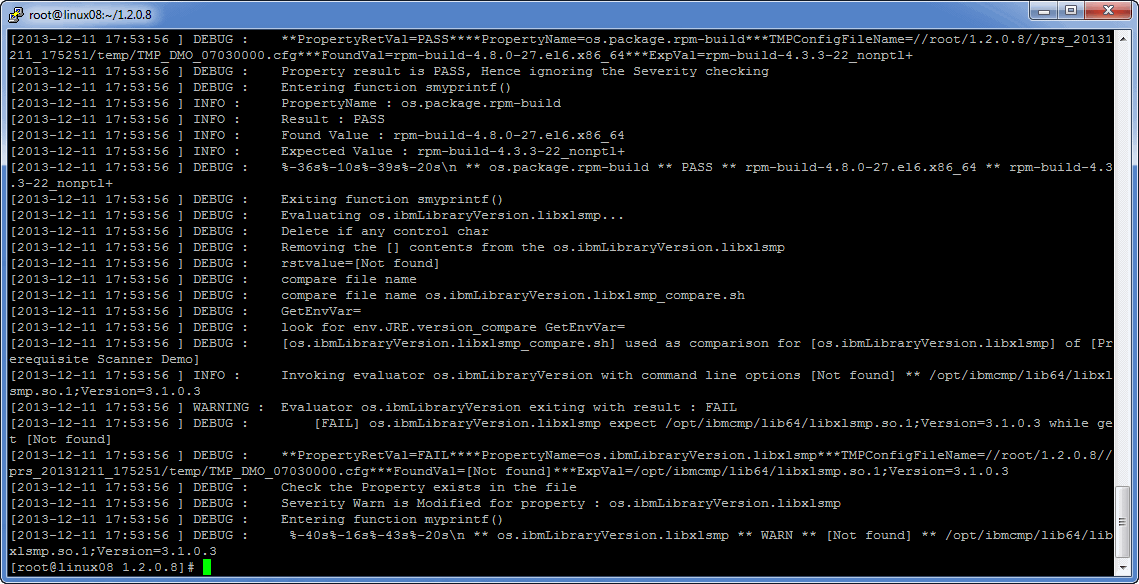Troubleshooting on UNIX systems
Writing messages to log files is disabled by default on UNIX systems. You can enable debugging functions by using the debug input parameter. The tool writes the debug data to a log file and uses time stamps to flag the start and end times of steps or functions. You can use the log file to correlate and troubleshoot a specific issue, function, or prerequisite check.
Debugging log file
When you run the Prerequisite Scanner script and set the optional debug parameter, Prerequisite Scanner writes detailed processing and debugging information and the scan results to the ips_output_dir/precheck.log file. It also writes informational, warning, and error messages to the file.
If you do not set the optional parameter, Prerequisite Scanner outputs the scan results, informational, warning, and errors messages in the ips_output_dir/precheck.log file by default.
